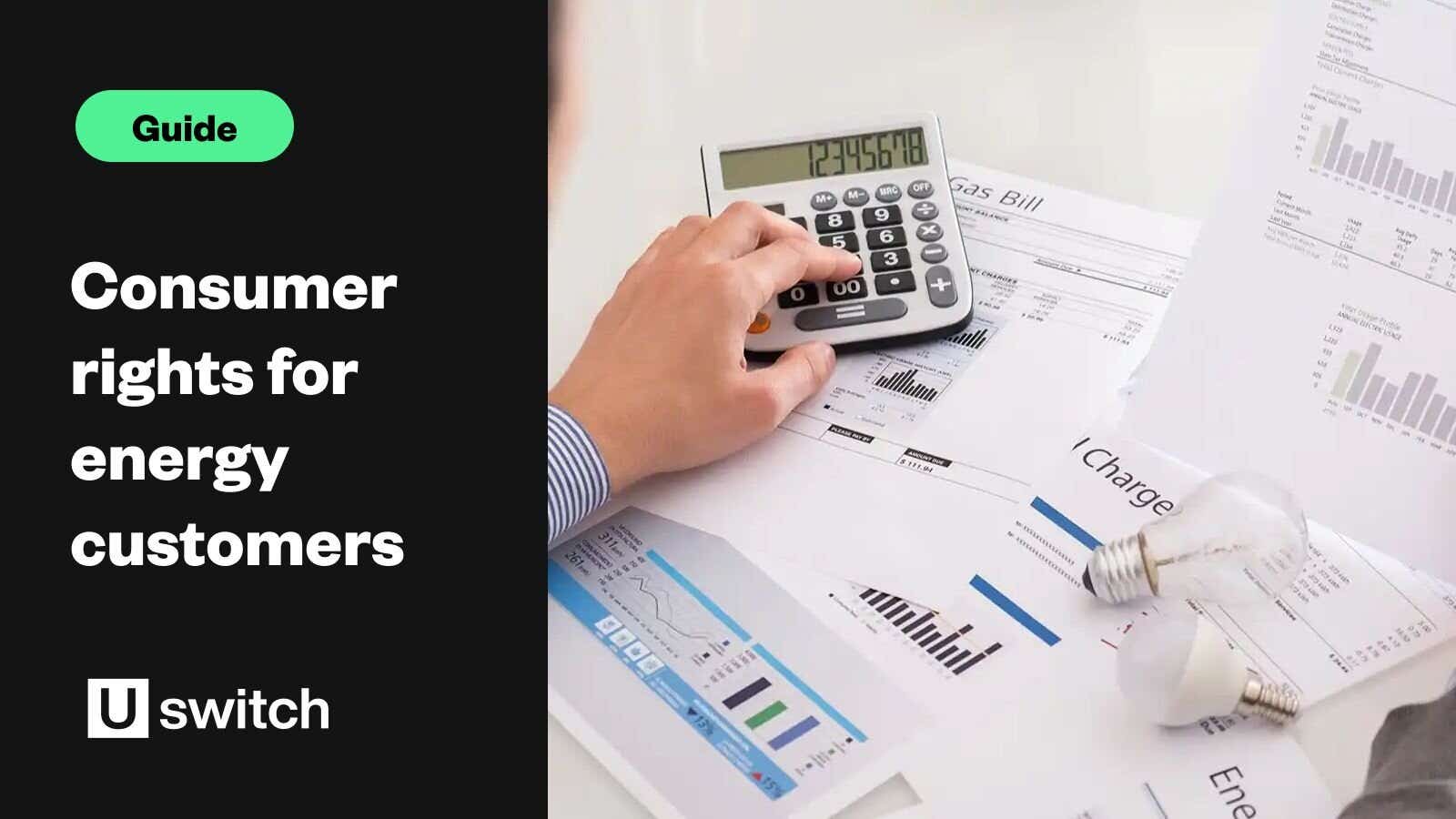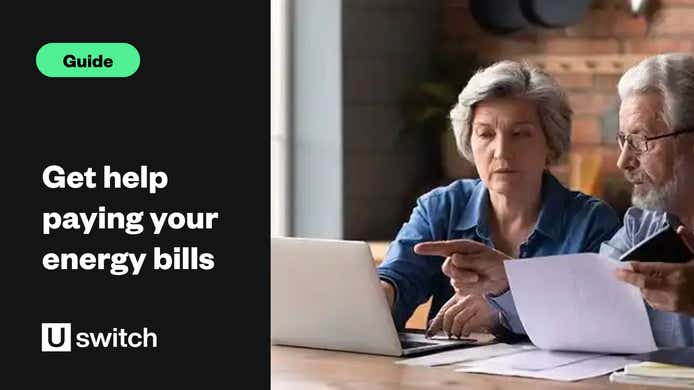Why are energy consumer rights important?
Consumer rights are legal rights which protect you as a consumer whenever you purchase a product or service. These rights are just as relevant for someone buying a hairdryer as they are for someone who purchases energy.
You can think of them as a shield which protects you from companies which might otherwise be able to take advantage of you.
What is the role of Ofgem for energy consumers?
It is energy regulator Ofgem’s job to make sure consumers are protected from high energy bills and mis-selling practices. The organisation oversees the energy market and enforces regulations which gas and electricity suppliers must adhere to.
If any supplier is suspected to be operating outside these regulations, it is Ofgem’s job to step in, run an investigation and fine the supplier if necessary. While Ofgem holds the power to investigate and penalise energy companies, it is often up to individual consumers to understand their rights and file complaints when those rights are violated.
Can my energy supplier increase its prices?
Yes. Wholesale oil and gas prices are constantly changing and your energy provider is likely to alter its retail prices accordingly. But don’t worry, it is obligated to let you know at least 30 days in advance.
What can I do if my supplier raises its prices?
If a supplier informs you of an upcoming price rise, the easiest way to avoid it would usually be to switch to a cheaper or fixed price energy tariff or supplier. You can use our energy comparison service to see what you could do, but it's switching may not be the right option for everyone at the moment.
It is worth noting that you have 20 days from when you were notified of the price increase to inform your supplier that you would like to switch. If you tell it later than this specified deadline, then your next bill will include the price rise.
If you're staying with your energy supplier, make sure you take a meter reading on the day the rise is applied. You can then share this information with your provider to make sure it is able to accurately assess your consumption.
Can energy companies raise my direct debit payments?
Yes. Your energy supplier will usually check your direct debit payments twice a year to compare your real consumption with your estimated consumption. This comparison may reveal that you have been paying more (or less) than your supplier has been charging you. As a result, the supplier can raise or lower your payments to reflect this change.
Under the Direct Debit Guarantee, should your payment increase or decrease, your supplier is under obligation to let you know a minimum of ten days in advance. If your bill changes and you are not told, you can contact your bank to dispute the charge and seek compensation.
To avoid paying an incorrect amount, you should check your bills against your electric and gas meter readings. You can find out how to do this with our electric meter guide. We recommend informing your energy supplier should any significant event take place within your household that could affect consumption, such as the number of people in your household changing.
If you disagree with an increase, get in touch with your supplier and ask it to explain the new figure. You can dispute its reasoning by providing it with an electric or gas meter reading. Another option to avoid price increases would be to consider opting for a fixed price plan, where prices are set for the duration of a contract.
What if I can’t afford my energy bills?
If you are having trouble paying your gas and electric bills, you should get in touch with your supplier as soon as possible. Energy suppliers must give you advice and work out a payment plan which takes into account what you can afford. Do not agree to a plan you will be unable to fulfil.
If you sign up to a plan but find yourself forced to default, your energy supplier may decide to install a prepayment meter in your household. In certain circumstances, you may be eligible for a grant from an energy charity.
For those on benefits, in some circumstances it is possible to join the Fuel Direct scheme. This initiative allows you to pay your fuel arrears directly from your benefits. It applies to those on the following benefits packages: income-based Jobseeker's Allowance, Income Support, income-related Employment and Support Allowance and Pension Credit.
Can my energy supplier disconnect me?
Although this rarely happens, it is possible for your energy provider to disconnect you in certain circumstances. Our energy debt guide has more information on why this could happen and what to do if it does.
What if I change my mind about switching energy supplier?
Everyone changes their mind, so don’t worry if you decide you no longer want to switch energy supplier but do act quickly. You may be able to cancel your switch depending on a number of factors. These include whether or not you have a contract, how the deal was sold to you and the contents of the agreement itself.
If you have agreed to change supplier, in writing or verbally, then you have a contract with the supplier. If you did not agree, then you do not.
If the agreement was made either at your home or in a public space (such as a shopping centre), then you have a 14-day cooling off period to cancel your contract. You do not need to give a reason.
Keep in mind that the agent must provide you with a copy of the contract, information on who to contact for independent advice as well as his or her name and position. If this information is not provided then you are free to cancel the contract.
If the agreement was made on the phone or online, you have 14 days to change your mind. This timeframe can be increased under the Distance Selling Regulations.
For more information you can check the Citizen Advice Bureau’s guide to changing your mind about switching.
How do I make a complaint to my energy supplier?
Energy provision is a service like any other and, if you feel your energy supplier is underperforming, you have every right to complain.
First, complain directly to your supplier. Sometimes a simple phone call is all it takes to clear up a misunderstanding. Do make sure you keep of note of who you spoke to and what their advice was, for future reference.
If the issue is more complex and isn’t resolved through a phone call, we recommend writing to your supplier. You can do this either by email or post. Be sure to include your account information and any relevant scans or photocopies of your bills.
If you’re still having problems, get in touch with Citizens Advice Consumer Service. This organisation was created to provide advice to consumers, although it won’t be able to take action on your behalf unless you qualify as a vulnerable citizen. You can contact the Citizens Advice Bureau on 0344 411 1444 or at www.citizensadvice.org.uk.
What if my energy supplier can’t resolve my issue?
If your supplier is unable to sort out your issue or doesn’t get back to you, it’s time to get in touch with the Energy Ombudsman.
First, your supplier needs to acknowledge that the issue cannot be resolved on its side. Ask the supplier to provide you with a letter of deadlock which you can take to the ombudsman. This letter will state that it is unable to solve the problem.
You need to give your supplier eight weeks to try to solve any issue you have raised before it is required to provide you with a letter of deadlock. If, after this time, it does not issue a letter on request, you are free to contact the Ombudsman.
If you need more information, have a look at our energy complaints guide.
What is energy mis-selling?
Gas and electricity suppliers are bound by certain rules when they market and sell energy contracts. These rules are either dictated by Ofgem or part of a voluntary code of practice which most of the UK’s suppliers have signed up to.
Should an energy supplier pressure or mislead you into agreeing to a contract, you may have been mis-sold an energy deal. You can find more information on what constitutes mis-selling, as well as templates for letters, at the Citizens Advice Bureau website.
I think I’ve been mis-sold an energy contract — what should I do?
If you think you have been mis-sold an energy contract, your first step should be to get in touch with the relevant energy supplier. If you have been switched to a new supplier without your consent, you can complain to either your current or previous supplier.
Should the supplier be unable to handle your complaint, follow the steps listed in the above "What if my energy supplier can’t resolve my issue?" section.




